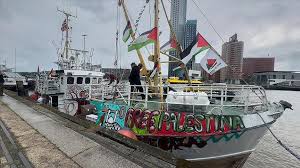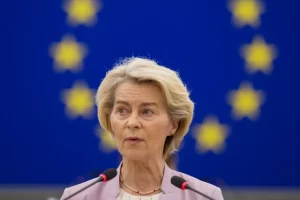Italian PM reveals “Mattei Plan” for African development ahead of Italy-Africa Summit

On the 28th and 29th of January, the Italian government will hold the much-anticipated Africa summit.
Over 50 delegations, mainly from African countries, as well as EU leaders and representatives of international organizations, will arrive in the Italian capital for the occasion.
The purpose of the conference is to present Italy’s strategic plan that aims to review the country’s approach to the African continent.
Italian premiere, Giorgia Meloni, unveiled a “non-predatory” approach aimed at fostering cooperation. Though critics argue that the plan, dubbed “Mattei Plan”, after Enrico Mattei, an Italian public administrator who, in the 1950s, advocated for Italy to support North African governments to grow their economies and develop their natural resources. Seventy years on, Meloni is showcasing the Mattei plan as the crown jewel of her foreign policy, aiming to once again renew Italy’s approach to the African continent. As things stand, however, the plan is far from comprehensive.
The plan is due to cost around 3 million euros a year and has a four-year duration. The goal is to enhance energy cooperation with African countries and help them in different areas including health, education, and other several other sectors, but its main purpose is to address the root economic causes of mass migration from Africa. Some critics have argued it lacks a clear strategy.
“We have all been waiting to find out more about the content of the plan. But as clarified by a government’s decree, the strategy will be outlined starting from this conference and in the weeks to come. We’d like the action plan to mainly focus on Africa’s needs and the needs of the states and the countries’civil societies. We’d also like to see the use of a “bottom up approach” meaning that nothing is being imposed from above. One positive aspect of the “Mattei pla” is its long-term vision – in other words we are not dealing with the single emergency like in the case of migrant arrivals but rather we are talking about a long term strategy,” shared Giampaolo Silvestri, Secretary General of the Fondazione AVSI.
A “non-predatory” plan
Meloni, who assumed office in 2022 with an anti-migrant platform, seeks to position Italy as a crucial link between Africa and Europe.
“If we want to work on a strategy that brings African and European interests together, one example is energy, because Africa is potentially a huge energy producer and Europe has an energy supply problem,” said the Italian prime minister.
Looking at the year ahead, Italy cannot afford to be vague on its Africa policy: around 40 per cent of its gas comes from African producers, and this number is only set to rise; its involvement in the Sahel and North Africa to mitigate rising instability and foreign interference has been at times careless; and despite 80 per cent of irregular arrivals into Italy coming from northern African ports, Rome’s attempts at cooperation on migration have largely failed.
As part of its G7 presidency this year, Italy aims to make African development a central theme to enhance its influence on a continent where global powers like China, Russia and India have been expanding their political sway.
Enrico Mattei viewed Africa as the emerging battleground between the East and West. To some extent, this perception still holds true: from Sudan to Mali, Russia has increased its involvement in Africa, and China’s Belt and Road Initiative has enhanced its influence on the continent. Historically, Italy and the West have pursued containment strategies rather than fostering mutual interest or equitable collaboration – a legacy that many Africans view with disdain. Italy’s failure to adequately address its colonial past and fulfill moral responsibilities in former colonies exacerbates this sentiment. The widespread lack of awareness further provides an opportunity for Meloni to portray the Mattei plan as non-exploitative toward African nations, despite the absence of concrete evidence. Achieving success in new initiatives between Italy and Africa necessitates a profound understanding of history and a keen awareness of how these efforts will be perceived, as presented by the European council on foreign relations.
Energy deals for stopping migration
While energy “may be the most relevant part” of the Mattei Plan, “Meloni is investing political capital in it mostly because of migration”, according to Giovanni Carbone, head of the Africa Programme at the Institute for International Political Studies (ISPI) in Milan.
Despite promising to stop migrant boats from North Africa, landings in Italy have risen under Meloni, from some 105,000 in 2022 to almost 158,000 in 2023.
Italy has been training the Libyan and Tunisian coastguards as part of an EU initiative.
The Mattei Plan also intends to tackle so-called push factors and persuade origin countries to sign readmittance deals for migrants refused permission to stay in Italy.
Experts warn the initiative must be structured to last, in a country famed for its chronic political instability.
Carbone questioned whether the government has the necessary African development knowledge or experience to make the plan work.
“Italy has a tradition of relatively close relations with Mediterranean countries such as Tunisia, Libya, partly Algeria and Egypt as well, but less so with sub-Saharan Africa, which should be at the heart of the Mattei Plan,” said Carbone.
“Italy has primarily small and medium-sized enterprises, for which it would be a big step to think about investing in what are perceived to be very remote and often problematic countries.”
Former Italian prime minister Matteo Renzi also looked towards sub-Saharan African markets in 2014 to 2016, “but it proved very difficult”, Carbone added.





